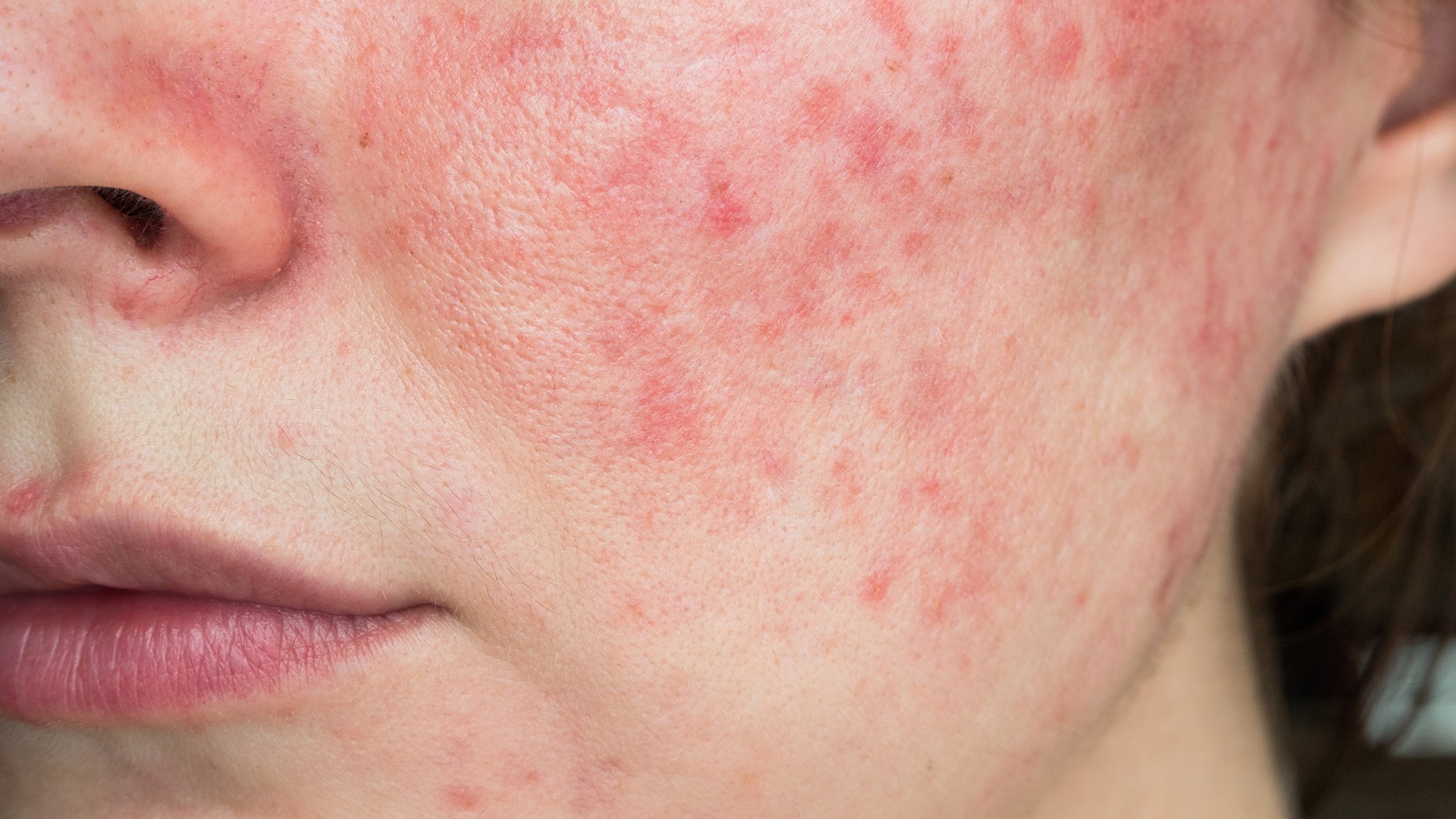
How to Prevent Rosacea
Rosacea is a chronic skin condition that causes flushing and redness, sometimes combined with bumps or pimples. Although doctors still don’t know what causes rosacea, treatments are becoming increasingly effective.
Rosacea typically affects adults between 30-50 years of age, though it can also occur in children. The first sign of the condition often includes frequent blushing; it’s more prevalent among fair-skinned individuals prone to blushing, but can affect anyone.
According to the National Rosacea Society, facial skin can become thick and swollen, giving off a reddened and bumpy appearance. On rare occasions, the nose may turn bulbous or ears or scalp may experience swelling as well.
Other symptoms of Rosacea include a dry or itchy appearance, small blood vessels on the face, and increased sensitivity to sun damage, according to the National Rosacea Society. Furthermore, eyes may become irritated which in severe cases could result in vision problems.
Some medications can aggravate rosacea flare-ups, so be sure to discuss potential alternatives with your doctor. Oral antibiotics are one common choice and work by killing bacteria on the skin which helps reduce redness or breakouts. A course usually lasts 6-12 weeks depending on which medication was prescribed.
Avoiding triggers is the best way to prevent rosacea. According to the National Rosacea Society, some of the most common triggers include spicy food, alcohol, sun exposure, extreme heat or cold, stress, and skin-care products.
Keep a journal of your symptoms to help identify potential triggers.
Avoid overheating your face by wearing a hat, lightweight long sleeves, or scarf. Stay indoors on days with high temperatures and humidity by taking cool baths or showers.
Utilize moisturizers daily to maintain a healthy skin barrier. This can reduce redness, itching, and dryness in addition to improving texture and tone of your skin.
Make sure to cleanse your skin gently with a mild soap or face wash that won’t cause irritation. Rinse thoroughly, and then pat your skin dry using a towel.
Wear sunscreen whenever you are exposed to the sun. It is especially essential for those with rosacea, who are more vulnerable to skin redness and flushing from UV rays; further exacerbating this condition.
Stay hydrated to prevent dehydration, which can exacerbate rosacea flare-ups. Limiting caffeine consumption also helps to reduce these uncomfortable sensations.
Maintain a balanced diet with plenty of fruits, vegetables, lean protein, whole grains and low-fat dairy products. Additionally, getting regular exercise is recommended to stay healthy and fit.
Sleep is essential in preventing rosacea, as is managing your stress levels. Studies have indicated that chronic stress can lead to various health issues including inflammation and may even be one of the major triggers for developing rosacea.
Another way to manage stress is through mindfulness techniques and learning relaxation and breathing exercises, according to the National Rosacea Society. These practices can help you feel calmer, which in turn helps reduce flare-ups.


